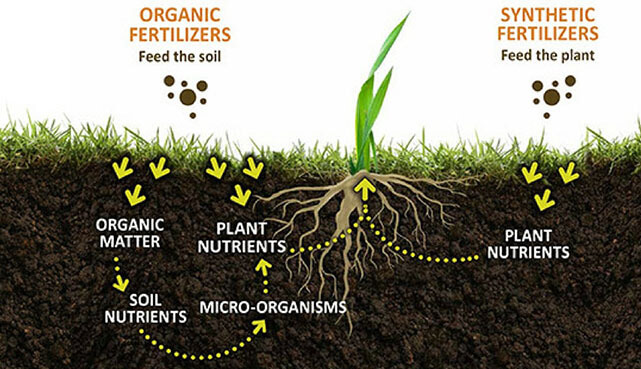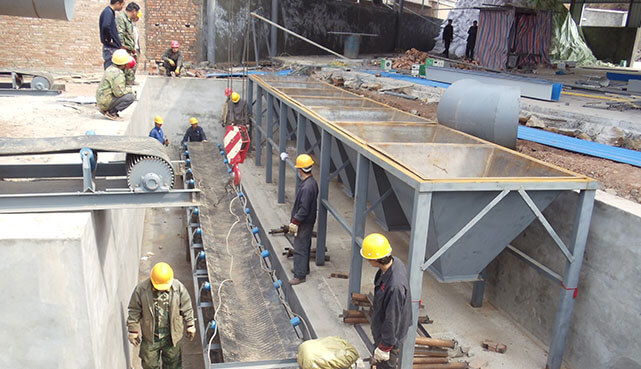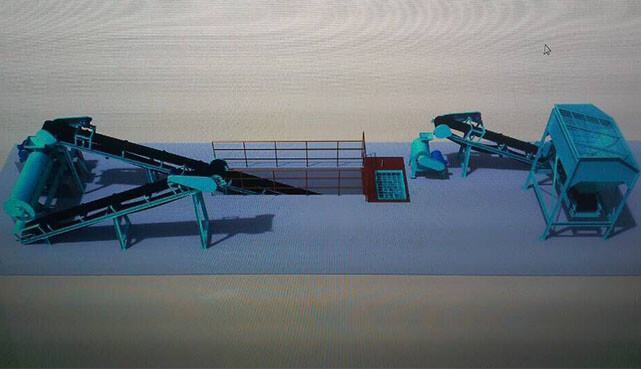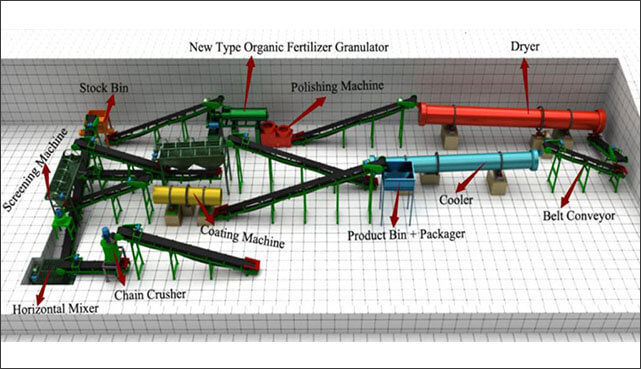Plants get many of the elements they need through the air. Oxygen, carbon and hydrogen are readily available. In addition, plants can create glucose and other substances through sunlight. However, basic elements cannot be created through photosynthesis, and plants must extract these elements through the soil. Even though air contains a significant amount of nitrogen, plants cannot absorb it. As a result, they must get it from the soil. Nitrogen becomes depleted in soil quickly, and the primary benefit of fertilizer is the nitrogen it provides. Plant cells also depend on potassium and phosphorous, which are rare.
Fertilizer contains a large amount of these elements, which ensures that plants stay healthy. Plants can generally grow without fertilizer, but they may take more time to get the elements they need to thrive. Fertilizer is essential in modern farming, and almost all farmers depend on it to keep their fields healthy and productive. Gardeners often use small amounts of fertilizer as well to ensure that their flowers and other plants look their best.
Fertilizer is a material that provides one or more nutrients plants needed, helping improve soil physical and chemical properties and raise soil fertility. Both types and brands of fertilizer in the market are in a great variety, which is divided into mineral fertilizer and organic fertilizer. It is of great importance for plants to use fertilizer.
Required elements of higher plants:
Macronutrients: carbon, hydrogen, oxygen, nitrogen, phosphorus, and potassium.
Secondary elements: calcium, magnesium, and sulphur.
Micronutrients: iron, boron, manganese, copper, zinc, and molybdenum.
The Effects of Different Fertilizer on Plants
1.Providing multi-nutrition
Fertilizer, especially compound fertilizer, can supply various supplements. Compound fertilizer is the fertilizer that made from not less than two types of nutrients, such as calcium phosphate and ammonium nitrate.
Decomposition of fertilizer is slow. Plants, using compound fertilizer as base fertilizer, should apply fertilizer in accordance with fertilizer requirement pattern. This kind of fertilize can provide several quick nutrients and play a catalytic role in plants growth. It has an important effect on raising the utilization ratio of fertilizer and improving the quality of farm products.
2.Soil amelioration
The physicochemical properties of soil are basic elements for plants. Mineral nutrition is significant material foundation in living activities. There are great differences in demand of minerals for different plants.
Organic fertilizer is the a general designation that uses local materials in the countryside. It contains diluted urine, composting heap, green manure, miscellaneous manure and cake fertilizer, etc. These materials provide necessary ingredients for improving the soil. Soil organic matter can improve the physical and chemical properties of soil, which is conducive to the formation of soil crumb structure, thus contributing to plant growth and fertilizer absorption.
The substances, such as vitamins, black rot acid, fulvic acid, brown rot acid, and low molecular weight organic acid and butyric acid, have a direct impact on nutrition functions of plants in physical activity and stimulation, respiration enhancement and root growth promotion. Organic fertilizer business develops super fast in the world. Most potential investors show great interest in Organic Fertilizer Production Process, and make good preparation for their new business.
3.Increasing production
When soil is barren and plants growth is slow, it is time to use fertilizer. Although the types of fertilizer are different, the common goal is to increase production. Fertilizer is characterized of quick efficiency, high use ratio and remarkable effect, widely used in agriculture.
Only when using fertilizer properly can attain objectives. The inappropriate preparation or using too much fertilizer may cause side effect. Therefore, keeping just enough use level can help plants growth, increasing further plants production.
4.Slow release
The period of validity of fertilizer absorption is limited and short. To make a variety of regulatory mechanisms for initially delaying release of nutrient and extending use of plants to absorb nutrients for its effective validity, so that nutrients release becomes slow by setting the nutrient release rate. The solubility in water is small. Slow release of nutrients in the soil reduces the loss of nutrients. Long-term and stable fertilizer efficiency are able to supply plant nutrients in the entire production period.
The above effects are a few advantages in using fertilizer. As a matter of fact, fertilizer performs a number of functions in the process of plants growth. There are a variety of types of fertilizer. To choose applicable fertilizer is needful according to different demands. As long as using fertilizer moderately and accurately, it helps plants grow rapidly and effectively.






